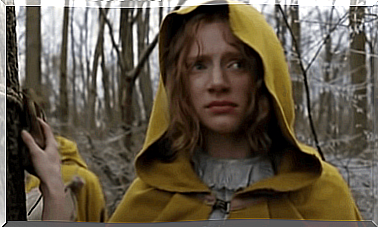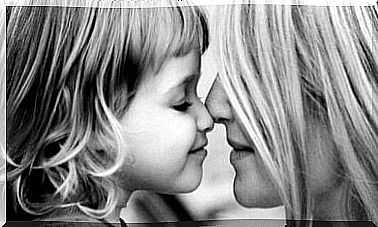Blindness To Change: The Overestimation Of Our Visual Capacity

Changes are constantly taking place around us. These modifications are relevant, but they seem imperceptible to us and, therefore, we are not aware of them. For this reason, it is said that people suffer from change blindness, because we have an exaggerated confidence in our ability to detect visual changes.
To demonstrate this extreme optimism regarding our observation capabilities, we suggest you view the following video. Would you be able to identify all the changes that are made in the scene?
Incredible true? Did you find 21? Blindness to change is an area that has been investigated in recent years, given its involvement in different areas and professional disciplines.
Speed and perspective
This lack of detection of the changes that occur in the visual field was defined for the first time by Ronald Rensink in 1997. This psychologist found differences in this phenomenon depending on whether these changes are introduced gradually or abruptly. Also, consider that this effect is greater when changes are made during a crop or panoramic image, as in the case of this other video.
Let’s imagine we are watching a movie. Specifically, a scene in which a salesperson and a customer are talking at a counter. If the seller stoops down (supposedly to pick up something) and is replaced by another person; in most cases, the viewer would not notice this modification. How can it be? Why do we notice such a relevant change?
The reason for the blindness to change
Our brain is “lazy” by nature. We are phylogenetically programmed to save as many cognitive and energy resources as possible. This is one of the explanations attributed to change blindness.
This organ is not a recorder that is constantly recording and processing all the details and data that it perceives. Rather, it tends to focus only on those that are most susceptible to being consciously modified. A selection that in turn is the result of experience and personal consistency. (Simons and Levin, 1998).
For example, in the previous case, it is more possible that what changes in the scene is the object on the counter (the one that the salesperson takes out), and not one of the interlocutors. Our brain assumes that it is the same person, because that allows it to save energy.
Selective attention
The phenomenon is accentuated if people are receiving stimuli that capture their attention more and keep it fixed. This would explain why, if we witness a robbery and see the robber with a gun, we are hardly able to take our eyes off the gun. In general, this image would exhaust all the attentional resources that we have and would not leave room for more details. We leave you another very curious video that measures this capacity.
Illusionists or magicians frequently use this technique and “take advantage” of the blindness to change. They know exactly where to generate the right attentional tension and how to perform the tricks at the right moment. Moving around with this kind of invisibility cloak is an art!
Blindness to blindness to change
As we have said, our day to day is governed by change. But instead of modestly believing that many go completely unnoticed, we are convinced that we are capable of appreciating very small and gradual changes. For this reason, it is also often said that we are blind to change blindness.
For example, let’s detail a case that is as illustrative as it is frequent. People can walk the same path to our work for years and not appreciate the small changes that occur from one day to the next. If they have painted a fence in another color, if they have removed a traffic sign, if they have closed an establishment … And there comes a day when you go through there again and you think, since when has this been like this? Has it happened to you?
In the same way that it happens in our environment, it happens in ourselves. We look at ourselves in the mirror every day and we do not appreciate the evolution and changes that occur in our face and body with age. But what if we stopped seeing each other for two months? Likewise, when we meet a friend we have not seen for a long time, we realize the small changes that he has had: thinness, wrinkles, marks … However, if we saw him every day, these signs of the passage of time would not they would stand out so much in our eyes.
Our brain is a still very unknown universe. Let us think that perceptual phenomena studied within the field of neuroscience and cognitive psychology, such as blindness to change, show the complexity of this organ.









